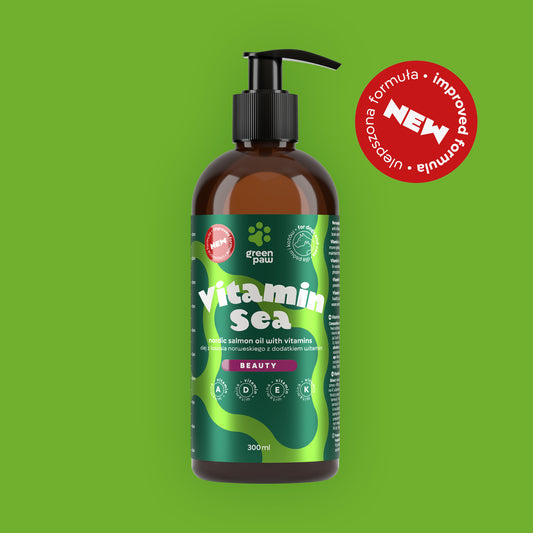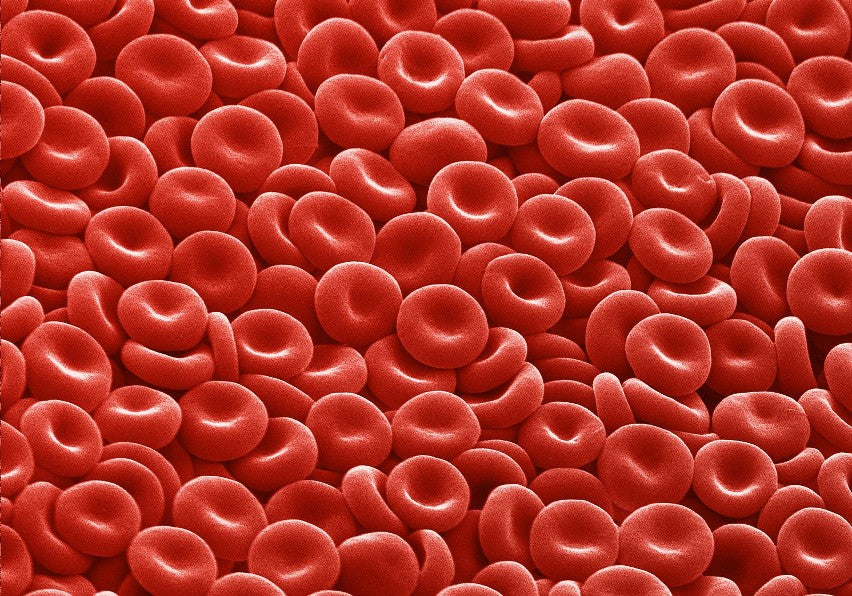
Vitamin K
Vitamin K may be a little less known than its "sisters" A, D3 and E, but its role in animal health and well-being is just as important. Here are some key benefits that vitamin K brings to our animal friends.
Cardiovascular Health
One of the most important tasks of vitamin K is to support the blood clotting process. Thanks to this, in the event of injuries or surgery, the risk of excessive bleeding is significantly reduced. This is crucial for the health of every animal, not only those that are particularly active or exposed to injuries.
Support for the Skeletal System
Vitamin K also helps maintain healthy bones. This is especially important for growing animals such as puppies and kittens, but also for older animals who are at higher risk of bone problems.
Cardiovascular Protection
Research suggests that vitamin K may help prevent cardiovascular disease. It helps regulate calcium levels in the walls of blood vessels, which is crucial for maintaining their elasticity.
How to Ensure Adequate Amount of Vitamin K?
As with other vitamins, too much vitamin K can be harmful. Therefore, it is important to consult your veterinarian to determine the appropriate dosage for your pet. Some pet foods are already fortified with vitamin K, but it is worth checking.
Summary
Vitamin K may be less known, but its role in pet health and well-being is overestimation. From the health of the circulatory system, through support for the skeletal system, to protection of the cardiovascular system - its positive impact is truly impressive. Therefore, if you want your four-legged or two-legged friend to be healthy and happy, do not forget about this wonderful vitamin in his diet. And remember, a healthy animal is a happy animal, and a happy animal is also a happy owner. So take care of your pet and don't forget about vitamin K!
Vitamin K can be found in:
-
Vitamin Sea
Vendor:Witaminy w oleju5.0 / 5.0
(4) 4 total reviews
Regular price 49,99 zlRegular priceUnit price / per49,99 zlSale price 49,99 zl -
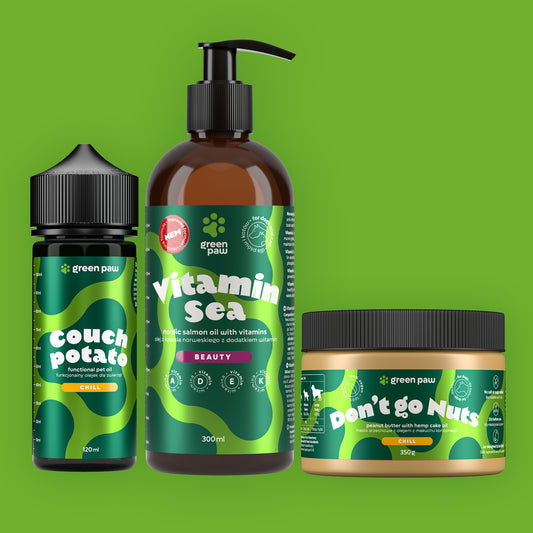 Sale
Sale👑 Król Osiedla 👑
Vendor:ZestawRegular price 135,99 zlRegular priceUnit price / per169,97 zlSale price 135,99 zlSale -
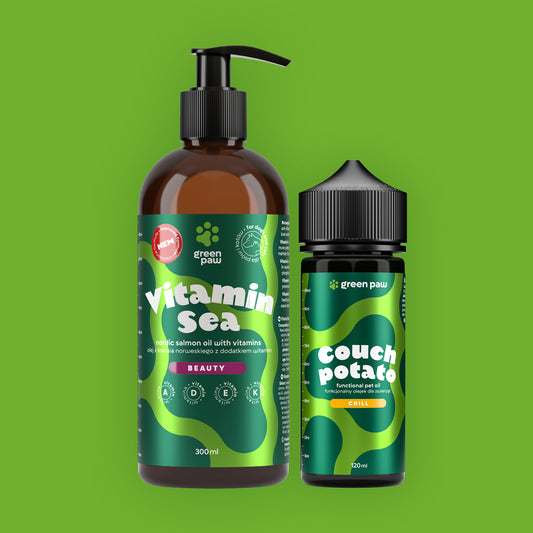 Sale
Sale🐡 Gruba Ryba 🐡
Vendor:ZestawRegular price 111,99 zlRegular priceUnit price / per139,98 zlSale price 111,99 zlSale -
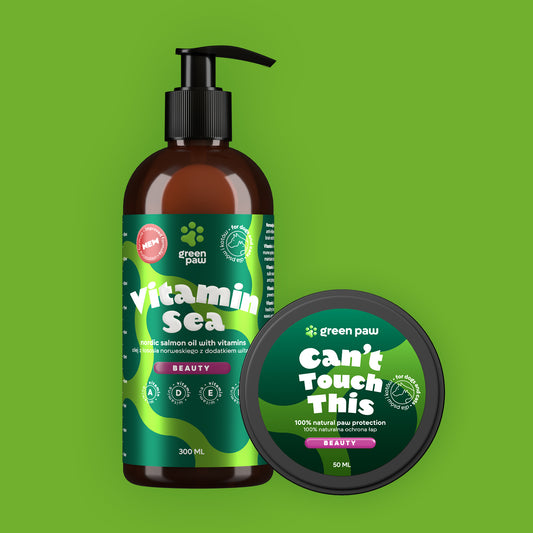 Sale
Sale💋 Ślicznotka 💋
Vendor:ZestawRegular price 71,99 zlRegular priceUnit price / per89,98 zlSale price 71,99 zlSale -
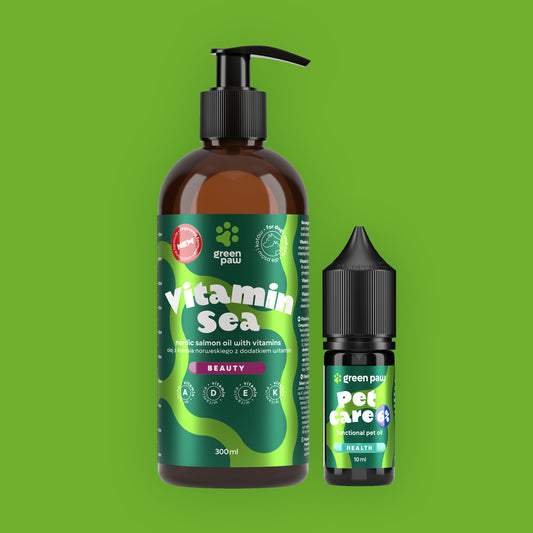 Sale
Sale🐈 Miau się dobrze 🐈
Vendor:ZestawRegular price 95,99 zlRegular priceUnit price / per119,98 zlSale price 95,99 zlSale -
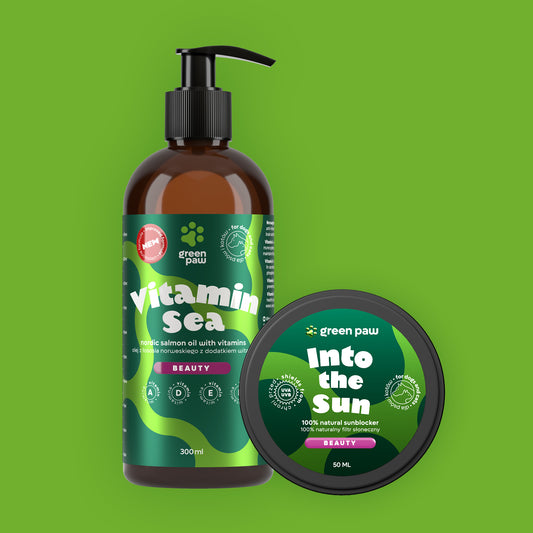 Sale
Sale🌞 Letnia Miłość 🌞
Vendor:ZestawRegular price 71,99 zlRegular priceUnit price / per89,98 zlSale price 71,99 zlSale






